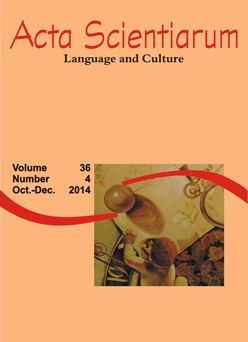<b>Bilingualism and linguistic politics in Brazil: From monolingual unreality to plurilingual reality
Abstract
Current article discusses the linguistic policies inBrazil and problematizes explicit or underlying notions of bilingualism in official documents. Different concepts of bilingualism over time are analyzed from a bibliographic and documental study. Further, the types of bilingualism contemplated by linguistic policies are investigated. The status of Portuguese, indigenous, foreign, sign and immigrant languages in these documents is discussed, as well as the legal attitudes related to bilingualism in communities of immigrants, indigenous, deaf and descendants of Negro slaves. An initial legal ambiguity may be noted when essentially monolingual linguistic policies are prioritized. A mild progress has occurred during the last few years, mainly, those related to the acknowledgement of indigenous communities as bi/multilingual. In fact, Brazil’s plurilingual condition and its pluricultural characteristics have not been yet acknowledged.
Downloads
DECLARATION OF ORIGINALITY AND COPYRIGHTS
I Declare that current article is original and has not been submitted for publication, in part or in whole, to any other national or international journal.
The copyrights belong exclusively to the authors. Published content is licensed under Creative Commons Attribution 4.0 (CC BY 4.0) guidelines, which allows sharing (copy and distribution of the material in any medium or format) and adaptation (remix, transform, and build upon the material) for any purpose, even commercially, under the terms of attribution.
Read this link for further information on how to use CC BY 4.0 properly.




















6.png)









